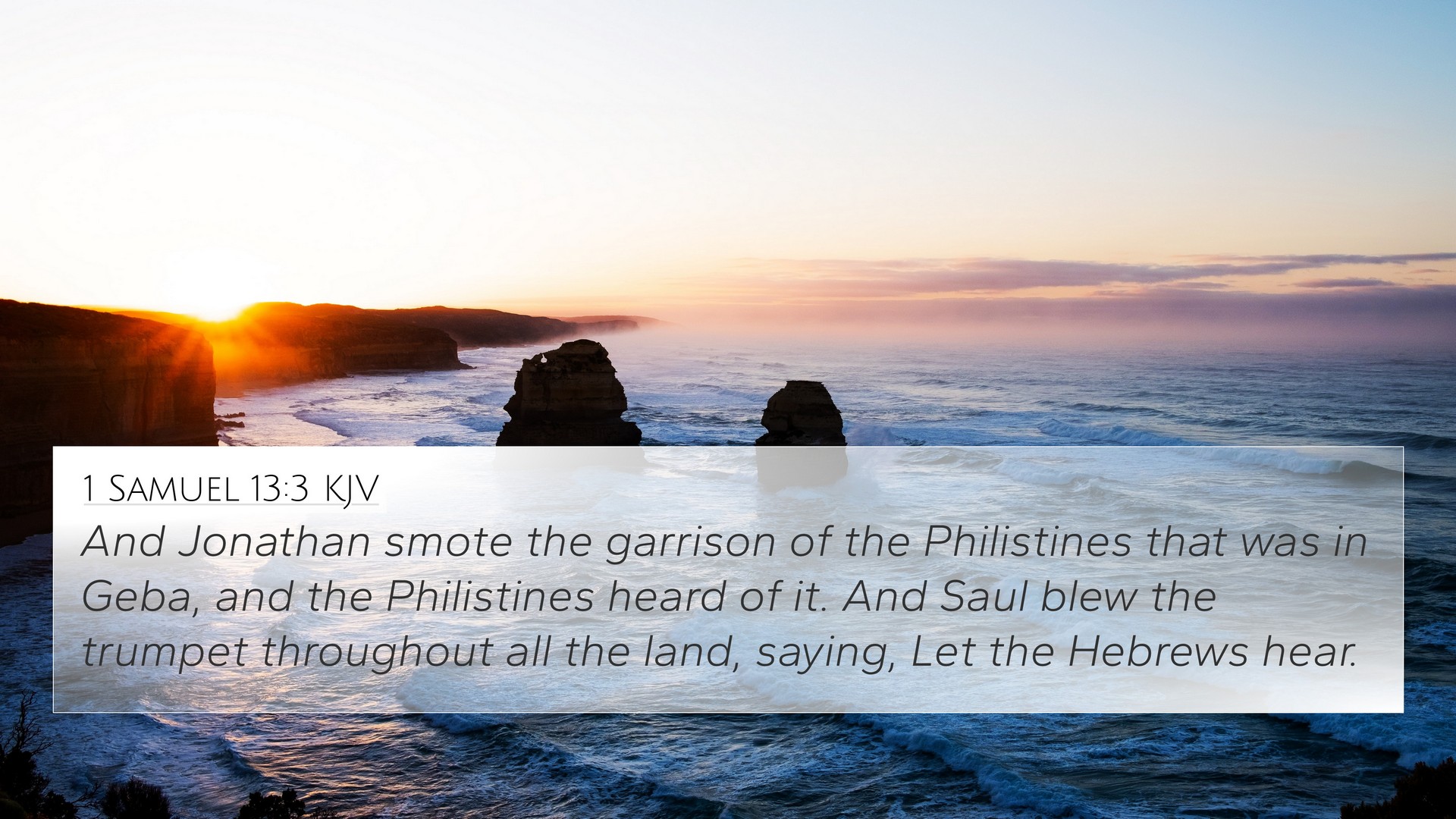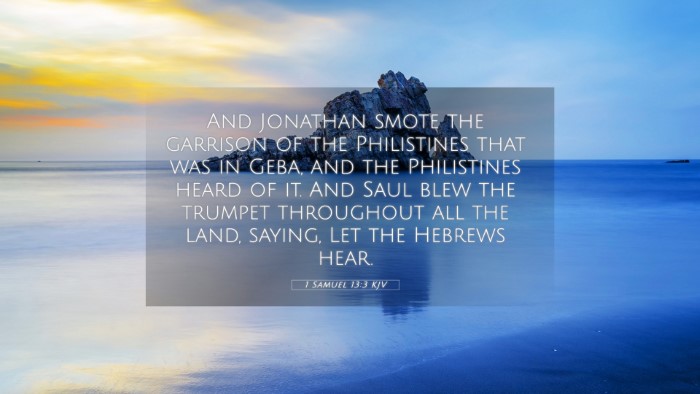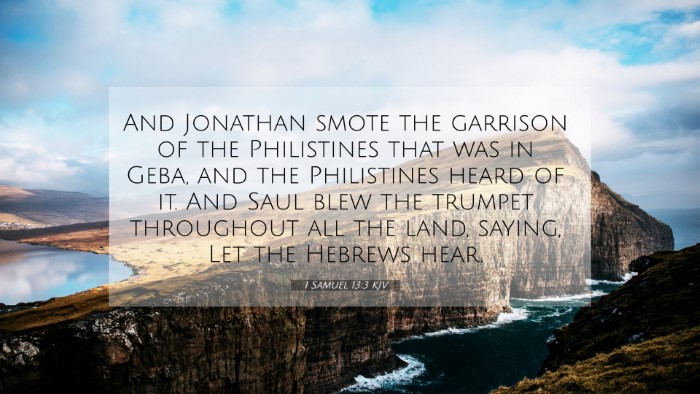This section features a detailed cross-reference designed to enrich your understanding of the Scriptures.
Below, you will find carefully selected verses that echo the themes and teachings related to 1 Samuel 13:3 KJV. Click on any image to explore detailed analyses of related Bible verses and uncover deeper theological insights.
 1 Samuel 10:5 (KJV) »
1 Samuel 10:5 (KJV) »
After that thou shalt come to the hill of God, where is the garrison of the Philistines: and it shall come to pass, when thou art come thither to the city, that thou shalt meet a company of prophets coming down from the high place with a psaltery, and a tabret, and a pipe, and a harp, before them; and they shall prophesy:
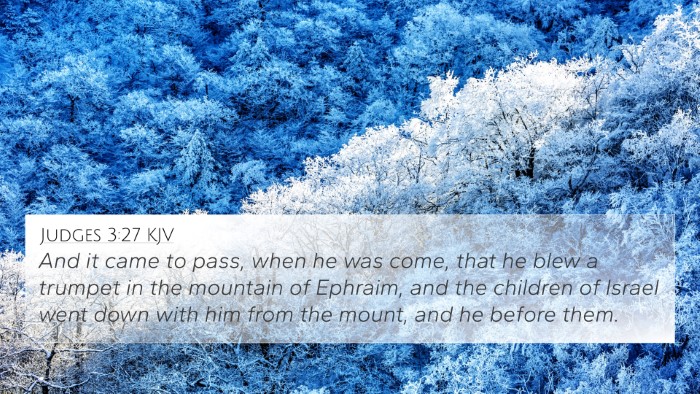 Judges 3:27 (KJV) »
Judges 3:27 (KJV) »
And it came to pass, when he was come, that he blew a trumpet in the mountain of Ephraim, and the children of Israel went down with him from the mount, and he before them.
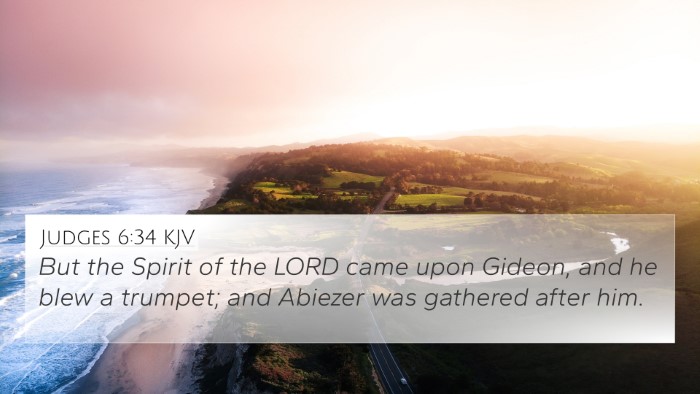 Judges 6:34 (KJV) »
Judges 6:34 (KJV) »
But the Spirit of the LORD came upon Gideon, and he blew a trumpet; and Abiezer was gathered after him.
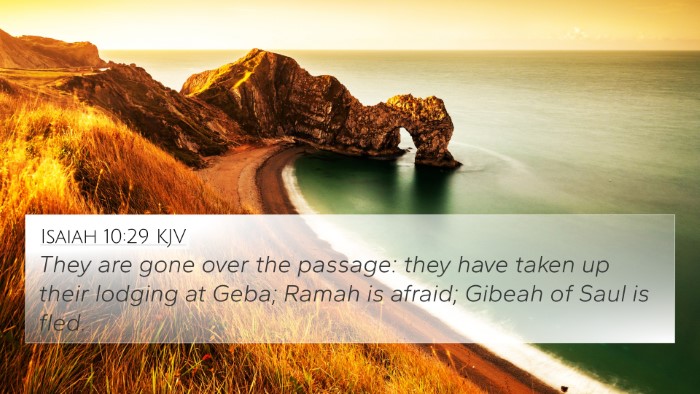 Isaiah 10:29 (KJV) »
Isaiah 10:29 (KJV) »
They are gone over the passage: they have taken up their lodging at Geba; Ramah is afraid; Gibeah of Saul is fled.
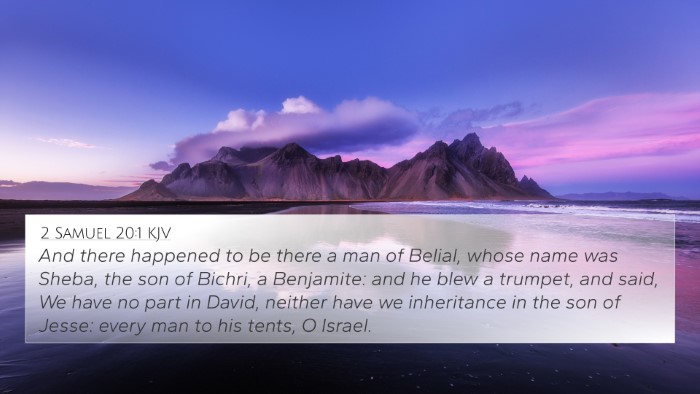 2 Samuel 20:1 (KJV) »
2 Samuel 20:1 (KJV) »
And there happened to be there a man of Belial, whose name was Sheba, the son of Bichri, a Benjamite: and he blew a trumpet, and said, We have no part in David, neither have we inheritance in the son of Jesse: every man to his tents, O Israel.
 2 Samuel 23:14 (KJV) »
2 Samuel 23:14 (KJV) »
And David was then in an hold, and the garrison of the Philistines was then in Bethlehem.
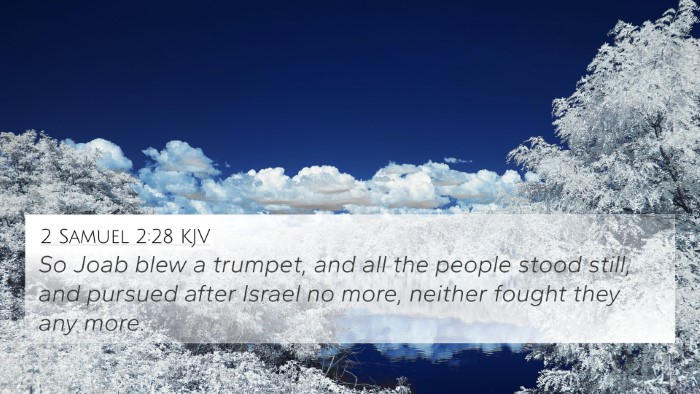 2 Samuel 2:28 (KJV) »
2 Samuel 2:28 (KJV) »
So Joab blew a trumpet, and all the people stood still, and pursued after Israel no more, neither fought they any more.
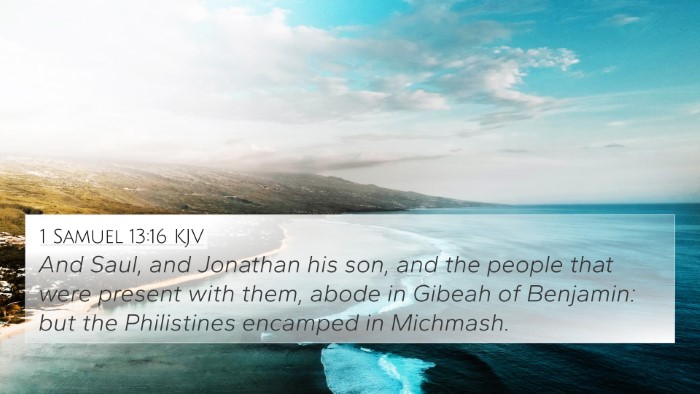 1 Samuel 13:16 (KJV) »
1 Samuel 13:16 (KJV) »
And Saul, and Jonathan his son, and the people that were present with them, abode in Gibeah of Benjamin: but the Philistines encamped in Michmash.
 1 Samuel 14:1 (KJV) »
1 Samuel 14:1 (KJV) »
Now it came to pass upon a day, that Jonathan the son of Saul said unto the young man that bare his armor, Come, and let us go over to the Philistines' garrison, that is on the other side. But he told not his father.
 Joshua 21:17 (KJV) »
Joshua 21:17 (KJV) »
And out of the tribe of Benjamin, Gibeon with her suburbs, Geba with her suburbs,
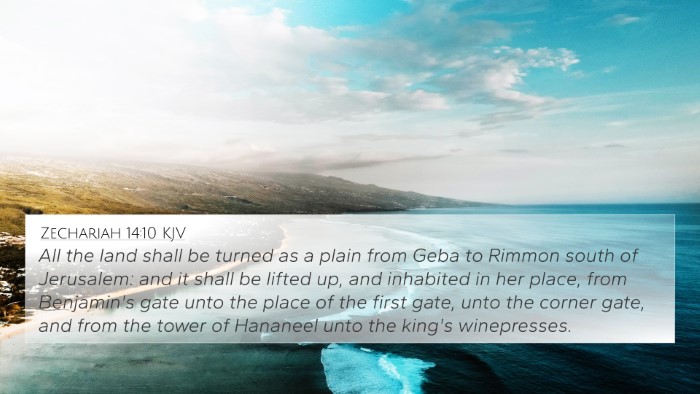 Zechariah 14:10 (KJV) »
Zechariah 14:10 (KJV) »
All the land shall be turned as a plain from Geba to Rimmon south of Jerusalem: and it shall be lifted up, and inhabited in her place, from Benjamin's gate unto the place of the first gate, unto the corner gate, and from the tower of Hananeel unto the king's winepresses.
